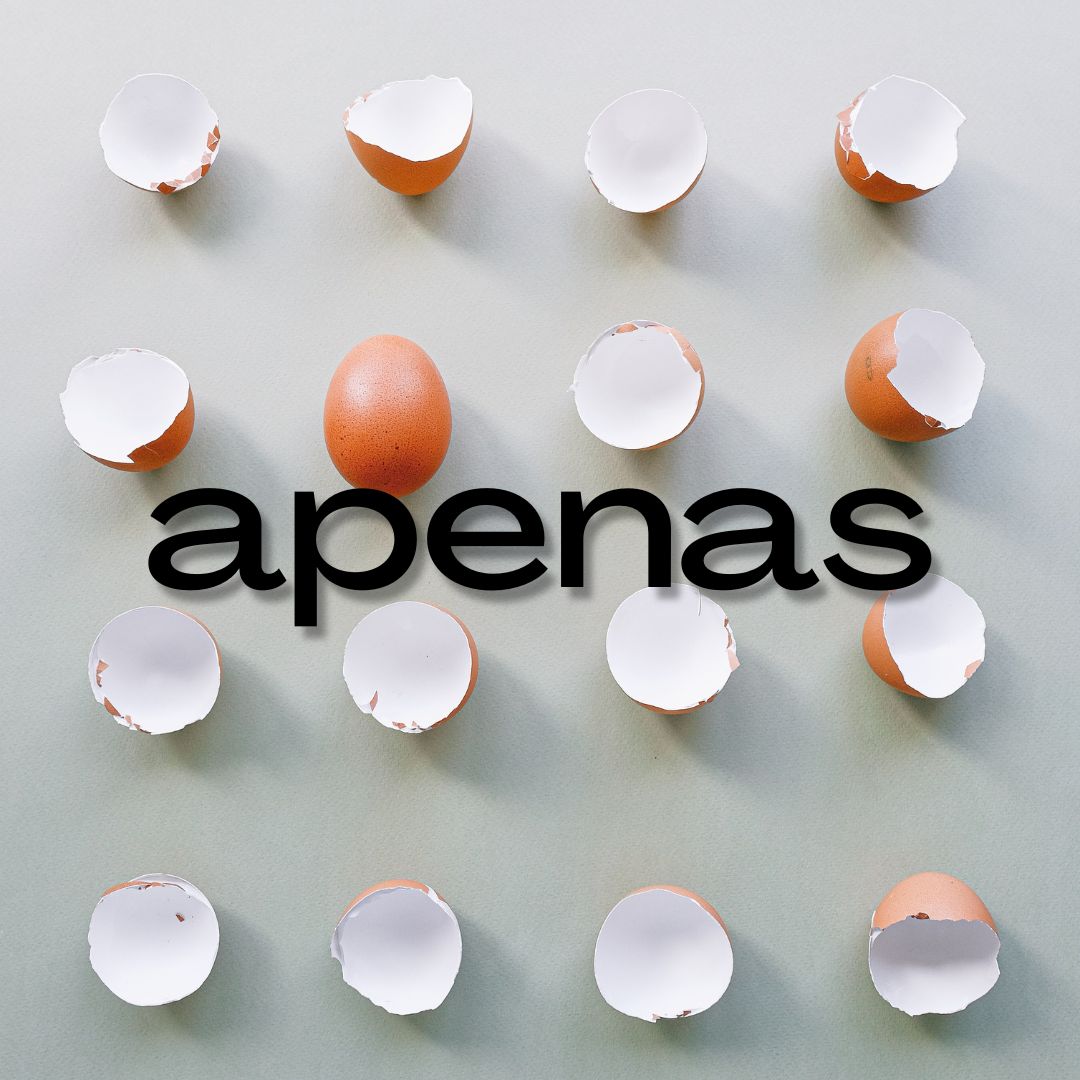Apenas in English: The multiple meanings of this versatile Spanish word

Get our free email course, Shortcut to Conversational.
Have conversations faster, understand people when they speak fast, and other tested tips to learn faster.
More infoApenas is a fascinating word that can have different meanings depending on the context and the grammatical role it plays within a sentence.
Dictionaries and translators often offer a limited definition for apenas in English, simply translating it as “barely” or “hardly.” However, this word can wear many hats! And while it does mean “barely,” it can also mean: as soon as, only, just, and more.
In this post we’ll show you plenty of examples of the word apenas in different contexts, so you can see its different meanings and use it in your daily conversations. We’ll also spend some time going over a few other Spanish words that are often confused with apenas. Once we’ve gone through everything, we’ll end with a short quiz where you can practice what you’ve just learned.
Apenas: The basics
Before we get into any of our explanations of how to interpret apenas in English, let’s just take a moment to touch on the basics of its grammatical functions and its spelling.
Grammatical function: An adverb or a conjunction
As already mentioned, as an adverb, apenas in English can mean “barely” or “hardly.”
When it functions as a conjunction, its meaning is “as soon as” or “just.”
Don’t worry, we’ll get into each of these in the following sections.
Spelling: Apenas (not “a penas”)
Before delving into the different uses and contexts of apenas, it is crucial to emphasize the correct spelling of this word. You may sometimes encounter apenas written incorrectly as “a penas.” However, this is just because the word is misspelled. This adverb or conjunction is always written as a single word: apenas.
Apenas as an adverb
As a Spanish adverb, apenas is used to modifiy verbs to qualify whatever the’re describing. We’ll introduce a few uses of apenas as an adverb here, but what links them is that when we use apenas we’re suggesting that we’re cutting it close or just scraping by. Let’s see each of these uses with some examples.
To express scarcity or lack
This is one of the most frequent uses of the word apenas in Spanish. In this case, it functions as an adverb of quantity since it modifies a verb by giving it quantitative information. In this context, apenas implies that there is very little of something.
In this scenario, apenas in English means barely, just, or only.
- Lo siento, no te puedo prestar dinero. Apenas tengo para llegar a fin de mes. – I’m sorry, I can’t lend you money. I barely have enough to make ends meet.
- Tengo mucho sueño, apenas dormí tres horas. – I’m very sleepy, I only slept for three hours.
- ¿Puedes comprar huevos? Apenas queda uno. – Can you buy eggs? There’s just one left.
To express difficulty in doing something
Spanish speakers also use apenas to express that something is performed with difficulty. In this sense, the word apenas in English can be translated as hardly, barely, or scarcely.
- El dentista me saco una muela y apenas puedo comer. – I got my tooth pulled, and I can hardly eat.
- No nos hemos reconciliado, apenas y nos saludamos. – We haven’t made up, we hardly even greet each other.
- Llámame luego, no hay señal y apenas te escucho. – Call me back, there’s no service, and I can barely hear you.
To express immediate or recent actions
Apenas is used when we want to say that an action has just taken place or is beginning to take place. In this case, apenas in English can be an equivalent to just.
- ¿Apenas te vas a bañar? ¡Tenemos que salir en cinco minutos! – Are you just going to take a bath now? We have to leave in five minutes!
- Entra, la reunión apenas comienza. – Come in, the meeting is just starting.
- Ellos necesitan descansar, apenas llegaron de un largo viaje. – They need to rest, they just got back from a long trip.
Apenas as a conjunction of time
As a Spanish conjunction joining two ideas together, apenas follows a similar line of thought to what we saw above when it’s used as an adverb, in that we’re cutting it close. In this use, however, we use apenas as a conjunction of time to reference some immediacy.
Apenas to express “as soon as”
Used as a conjunction, apenas in English is the equivalent of as soon as. In this context, apenas indicates that two actions take place at the same time, or that one action happens as soon as the previous one is finished. In some contexts, the translation of apenas in this use can be just.
- Apenas llego a casa me pongo ropa cómoda. – As soon as I get home I put on some comfortable clothes.
- Me cayó bien apenas lo conocí. – I liked him as soon as I met him.
- Apenas llegamos a Roma visitamos la Fontana de Trevi. – As soon as we arrived in Rome, we visited the Trevi Fountain.
Don’t get these words confused with Apenas
We have a noun and a couple of verbs in Spanish that appear very similar to apenas, so we’ll introduce them here to make sure you know the difference. We’ll start with the verbs penar and apenar, giving common conjugations and examples for each one. Then we’ll look at the noun pena, which in its plural form is penas, and we’ll end with the common expression using this noun: a duras penas.
Although the spelling and pronunciation of these words are related, their meanings are far from similar. We’re including them here so you don’t get them confused with apenas!
The verb apenar: To cause or feel grief or embarrassment
The verb apenar can mean to cause or feel grief, and also to feel embarrassed about something. This latter meaning is more common in Latin America. The present indicative tú conjugation of apenar is also apenas, so don’t confuse it with the adverb and conjunction apenas that we’ve looked at so far in our post!
Apenar is used as a reflexive verb when the grief or embarrassment is felt by the subject, so we’ll include the Spanish reflexive pronouns in our conjugations here. To help clarify its use, we provide a few examples after the conjugation table.
| Subject | Present Indicative | Imperfect | Preterite |
| Yo | (me) apeno | (me) apenaba | (me) apené |
| Tú | (te) apenas | (te) apenabas | (te) apenaste |
| Él, Ella, Usted | (se) apena | (se) apenaba | (se) apenó |
| Nosotros/as | (nos) apenamos | (nos) apenábamos | (nos) apenamos |
| Vosotros/as | (os) apenáis | (os) apenabais | (os) apenasteis |
| Ellos, Ellas, Ustedes | (se) apenan | (se) apenaban | (se) apenaron |
- Mary, mejor no vayas al aeropuerto. Usualmente te apenas mucho con las despedidas. – Mary, you’d better not go to the airport. You are usually very saddened by goodbyes.
- Hablar en público me apena demasiado. – Speaking in public embarrasses me too much.
- Creo que a veces apeno a mis amigos con mi comportamiento imprudente. – I think I sometimes embarrass my friends with my unwise behavior.
The verb penar: To suffer
In general, the Spanish verb penar is used to indicate that there is distress, suffering, or pain, which can be physical or emotional. Let’s see some of the most important conjugations and examples with this verb to clarify its use.
| Subject | Present Indicative | Imperfect | Preterite |
| Yo | peno | penaba | pené |
| Tú | penas | penabas | penaste |
| Él, Ella, Usted | pena | penaba | penó |
| Nosotros/as | penamos | penábamos | penamos |
| Vosotros/as | penáis | penabais | penasteis |
| Ellos, Ellas, Ustedes | penan | penaban | penaron |
- El dolor de espalda me tiene penando. – The crick in my back has me in pain.
- No mereces penar por su amor. – You don’t deserve to suffer for his love.
- Él penó mucho durante el viaje. – He suffered a lot during the trip.
The noun pena: Sorrow, Penalty
Pena in English means sorrow or penalty. The plural of pena is penas. Don’t get these confused with apenas!
- En la guerra las personas pasan muchas penas. – In wartime, people go through a lot of sorrow.
- La ley impone penas severas para los asesinos. – The law imposes severe penalties for murderers.
Another frequent use of this word is during sports like fútbol, as we introduce in our post on the World Cup and soccer in Spanish.
A duras penas: Barely, Hardly
A duras penas is a common idiomatic expression in Spanish that we use when something is very difficult, requires a lot of effort, or is almost impossible to achieve. It’s derived from the previous noun, so its literal translation could be something like with hard suffering, though the better English equivalent is hardly or barely.
Even though the translations may be similar, don’t confuse a duras penas with apenas! That being said, a duras penas the expression and apenas the adverb can often be used in in the same contexts with only slight differences in meaning. This is the origin of the common misspelling of apenas in Spanish we mentioned near the beginning of this post, so now that you’re able to identify the difference between the two you’re ahead of a lot of native speakers!
- El examen estuvo muy difícil, a duras penas logré contestar la primera parte. – The exam was very difficult, I barely managed to answer the first part.
- Después de la pandemia mi negocio sobrevivió a duras penas. – After the pandemic my business barely survived.
- La carretera estaba en muy mal estado, a duras penas logramos salir de ahí. – The road was in very bad shape, we hardly managed to get out of there.
Conclusion
To sum up our post on apenas in English, we’ve seen that it can be translated a few different ways depending on the context. As an adverb it can usually be taken to mean hardly, scarcely, or barely, while sometimes a better translation is simply just or only. As a conjunction of time, apenas in English is usually translated to as soon as. The unifying notion with apenas in Spanish is that it denotes that we’re cutting it close with whatever we’re describing.
We also cleared up a few other words that are often confused with apenas, namely the verbs apenar and penar, as well as the noun pena. We ended with the expression a duras penas in Spanish which can often be used in similar situations to the adverb apenas, but which has a slightly different meaning.
We hope you’re now clear on the various ways to use apenas, as well as how to avoid confusing apenas with similar words!
Exercises: Apenas in English
We’ll leave you with some exercises where you have the chance to practice using apenas in Spanish. Please translate each sentence to English. Remember to read each sentence carefully to decide if apenas works as an adverb or as a conjunction.
1. Llámame apenas llegues a casa.
2. Hoy tuve un día muy ocupado, apenas voy a almorzar.
3. Debo ir al médico, me caí y apenas puedo caminar.
4. Apúrate, apenas quedan cinco minutos para que empiece la película.
5. El perro comenzó a ladrar apenas entraste a la casa.
Answers
1. Call me as soon as you get home.
2. I had a busy day today, I’m just going to lunch.
3. I have to go to the doctor, I fell and can barely walk.
4. Hurry up, there are barely five minutes left until the movie starts.
5. The dog started barking as soon as you entered the house.



